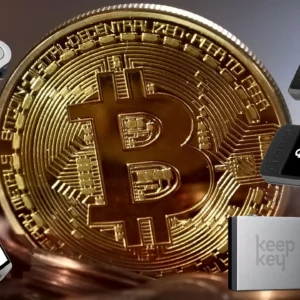Introduction
The financial landscape is undergoing a massive transformation as traditional stock markets and digital assets converge. The introduction of Bitcoin ETFs and the potential for Nasdaq’s 24/7 trading are two groundbreaking developments reshaping the crypto market.
Historically, stock exchanges have operated within fixed hours, leaving crypto traders in a unique position with access to 24/7 markets. However, if Nasdaq and other major financial institutions adopt round-the-clock trading, the distinction between traditional finance and cryptocurrency will blur even further.
In this article, we will explore how Nasdaq’s potential move to 24/7 trading and the introduction of Bitcoin ETFs are changing the crypto market. We’ll discuss the benefits of these changes, their implications for investors, and what the future may hold for digital assets and traditional stock markets alike.

The Impact of Nasdaq’s 24/7 Trading on Traditional and Crypto Markets
For decades, the stock market has operated on a rigid schedule—opening in the morning and closing in the afternoon, with weekends and holidays off. Meanwhile, the crypto market never sleeps, allowing investors to trade Bitcoin, Ethereum, and other digital assets at any time of day. If Nasdaq’s trading hours expand to 24/7, it will mark a pivotal shift in the financial sector.
Benefits of 24/7 Trading
- Increased Market Liquidity – Currently, stock market trading pauses outside of regular hours, leaving investors unable to react to breaking news. A 24/7 market would reduce price volatility caused by gaps between trading sessions.
- Alignment with Crypto Markets – Cryptocurrency trading operates nonstop, meaning traditional traders would have better access to digital assets without needing to use offshore exchanges.
- Enhanced Global Participation – Investors from different time zones would have equal access to stocks and Bitcoin ETFs, allowing for a more inclusive financial system.
While this transformation would require significant infrastructure changes, the integration of Nasdaq’s 24/7 trading with the crypto market could make traditional financial systems more efficient and responsive.
How Bitcoin ETFs Are Bringing Institutional Investors into the Crypto Market
Bitcoin ETFs have been one of the most highly anticipated developments in the cryptocurrency industry. These financial instruments allow investors to gain exposure to Bitcoin without directly buying or holding the asset. By making Bitcoin more accessible through regulated financial products, Bitcoin ETFs have introduced a wave of institutional money into the crypto market.
Why Bitcoin ETFs Matter
- Institutional Adoption – With Bitcoin ETFs, hedge funds, pension funds, and large-scale investors can easily allocate capital to Bitcoin through familiar financial products.
- Regulatory Approval – ETFs are regulated investment vehicles, providing a level of security and legitimacy that traditional crypto exchanges may lack.
- Market Stability – As more institutional money flows into Bitcoin ETFs, the volatility associated with Bitcoin trading may decrease over time.
By combining Nasdaq’s expertise in financial markets with the innovation of Bitcoin ETFs, the crypto market is becoming more structured and accessible to mainstream investors.
The Convergence of Traditional Finance and the Crypto Market
The combination of Nasdaq’s potential for 24/7 trading and the rise of Bitcoin ETFs signifies a deeper integration between traditional finance and the crypto market. This convergence is breaking down barriers that once separated digital assets from traditional stocks and commodities.
Key Drivers of Convergence
- Regulatory Clarity – As governments and financial institutions establish clearer regulations, the gap between crypto and traditional finance is closing.
- Institutional Involvement – Companies like BlackRock and Fidelity have launched Bitcoin ETFs, signaling that Wall Street is taking crypto seriously.
- Technological Advancements – Blockchain technology is being integrated into traditional finance, making transactions more efficient and transparent.
As Nasdaq’s trading hours expand and Bitcoin ETFs gain popularity, the crypto market is becoming more interconnected with traditional investment strategies, making it easier for investors to diversify their portfolios.
The Future of Nasdaq, Bitcoin ETFs, and the Crypto Market
The financial industry is on the brink of a major transformation. If Nasdaq’s 24/7 trading becomes a reality, it will set a precedent for other global exchanges, creating a more fluid and interconnected market. Additionally, the rise of Bitcoin ETFs will continue to drive institutional investment in the crypto market, further legitimizing digital assets.
What Lies Ahead?
- More Crypto-Based Financial Products – Beyond Bitcoin ETFs, we may see ETFs for Ethereum, DeFi tokens, and other blockchain-based assets.
- Wider Adoption of 24/7 Trading – If Nasdaq leads the way, other stock exchanges may follow, making financial markets more accessible worldwide.
- Integration of Blockchain in Traditional Finance – With institutions increasingly using blockchain for transactions and settlements, the distinction between crypto and traditional finance will continue to blur.
Conclusion
The financial world is rapidly evolving, and the integration of Nasdaq’s 24/7 trading with Bitcoin ETFs is a testament to that change. These innovations are making the crypto market more accessible to both institutional and retail investors, bridging the gap between traditional finance and digital assets.
As we move into this new era of financial markets, what are your thoughts on 24/7 trading and Bitcoin ETFs? Do you believe these changes will benefit investors, or are there potential risks to consider? Let us know in the comments below!






